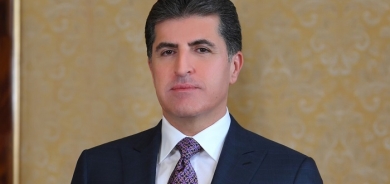Jim Butterfield: Failed states can lead to any number of pathologies: civil war, economic crisis, external intervention, and political opportunism
April 8, 2014
Exclusive Interviews

Butterfield: There has actually been a lot of work done on this question. The Fund for Peace, a non-profit research and educational organization based in Washington, DC, publishes a Failed State Index annually. It's based on 12 criteria that fall into four categories. The categories are social, economic, political and military indicators. Many factors are considered, including violence in society, migration and refugees, natural disasters, water shortages, income inequality, inflation, corruption, educational opportunities, human rights, power struggles and the quality of elections – to name just a few. The worst state in the world on the list of failed states is Somalia. In 2013, Iraq ranked 11th. Iraq has experienced a slight improvement every year since 2013, but naturally still is far from a stable and strong state.
Gulan: Experts think that failed state firstly begins with corruption, which results in failing the institutions to provide basic services for the people. To what extent corruption is the main factor for failing the state?
Butterfield: It's not. There are many other factors. Severe ethnic or religious divisions, hyperinflation, high unemployment, massive refugee flows, natural disasters can all have a greater impact. Corruption is something people get used to even if they don't like it. But it can slowly erode legitimacy and the frustration that builds from it can boil over at crucial moments. Witness the events in Tunisia in January, 2011. The spark was the fruit-seller who set himself on fire, but the massive protests that resulted were about lack of opportunity and – yes – corruption.
Gulan: After weakening of state institutions, the political process falls in crisis and an elite takes control of state income sources and institutions using them to remain in power. In your view; how far failed state creates a ground for emergence of authoritarianism and dictatorship regimes?
Butterfield: Failed states can lead to any number of pathologies: civil war, economic crisis, external intervention, and political opportunism. A political opportunist can be anything from a populist demagogue to a warlord. In most cases, such an individual is not likely to be democratic.
Gulan: Taking control of military and using it for resolving the local problems, is another sign of dictatorship emergence in failed state. The question in here is that; what disasters does using of army will create in resolving internal problems of a state?
Butterfield: Military intervention is never a viable long-term solution. Military regimes usually exhaust their legitimacy within a few years, if not less. Generals rarely prove to be effective leaders. But it's possible that in an acute crisis – whether as a result of economic issues, a natural disaster, or an increasingly failed state – the military can at least restore public order. The problem is that once a military has intervened, it become easier to continue to do so when the generals decide it's justified.
Gulan: After controlling revenues and army by an elite, they try to take control of judiciary also. When the law becomes a weapon in the hand of dictator for cracking down the opponents, how far it endangers the legitimacy of state?
Butterfield: That's a subjective question that only the population of that state can answer. But I can say this: when the law becomes a weapon in the hand of a dictator, it's no longer the rule of law. It's rule by those laws that the dictator chooses to use to serve his own purposes. Other laws are simply ignored.
Gulan: Another danger of failed state, which is seen in Middle East, is creating a safe haven for terrorists. Iraq and Syria’s situations are apparent examples. To what extent creation of safe haven for terrorists is a threat on international pace and security? Just as Taliban’s failed state did in Afghanistan.
Butterfield: The 20th century was the century of conventional wars fought between opposing armies on battlefields and in the skies. The 21st century is witnessing a different kind of warfare, one where the enemy is stealthy, not always easily identifiable, and potentially very deadly. Terrorists are attracted to failed state precisely because authority is weak or non-existent. Sometimes it's just areas of a country where an otherwise relatively effective government is weak. This has been the case in parts of northern Pakistan, the Maghreb in northern Africa, certainly remote islands in the Philippines, the jungles of Colombia, and the mountains of Tajikistan.
Gulan: U.S. in the time of Obama’s administration doesn’t’ seem to have a strategy for preventing the creation of failed states, this is while creation of failed states in an area like Middle East endangers the interests of the west. According to your view; do you think if this action of America is due to it’s weakness or America has completely left Middle East behind?
Butterfield: It's not just the US. One of the reasons why the Fund for Peace publishes the Failed State Index is so that the international community can identify states that are slipping into chaos and conflict before it fully happens. Technical assistance can help if targeted and implemented well. But once a state has slipped to near the top of the index, it's hard for anyone – the US or otherwise – to do much.
Gulan: Expectations for the current situation in Iraq are “heading of the country toward an overall chaos and collapse”. If U.S. has already spent tens of billion dollars in Iraq in order to develop democracy in there, but Iraq is heading towards becoming a failed state, how far this questions America’s trust on the international level?
Butterfield: I would say it demonstrates that the ability of the US to control events elsewhere in the world is quite limited. I wish this was a lesson we would learn.















